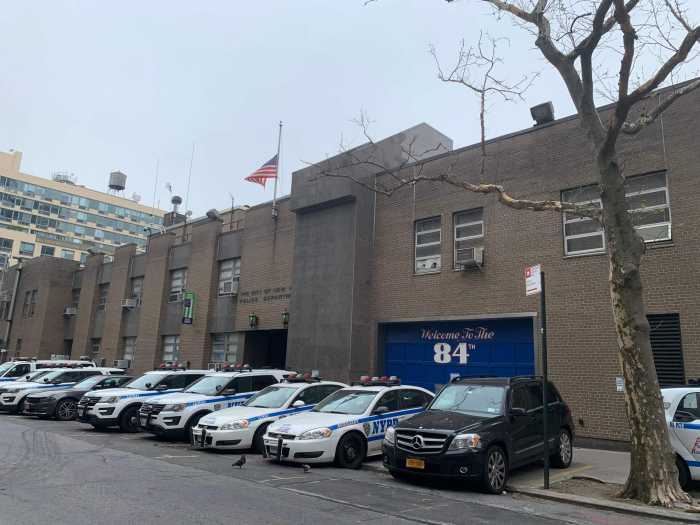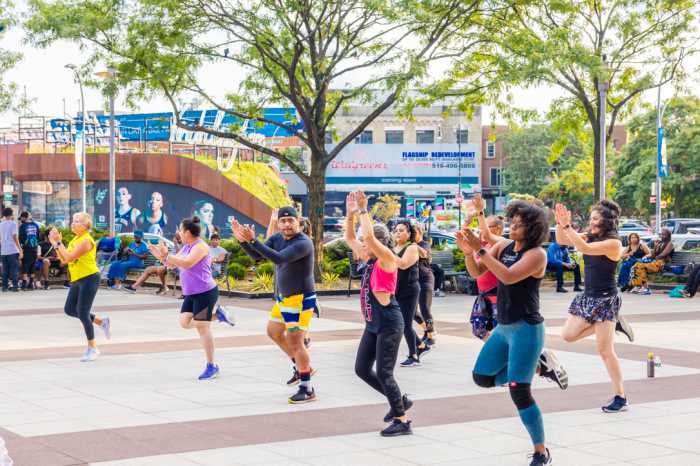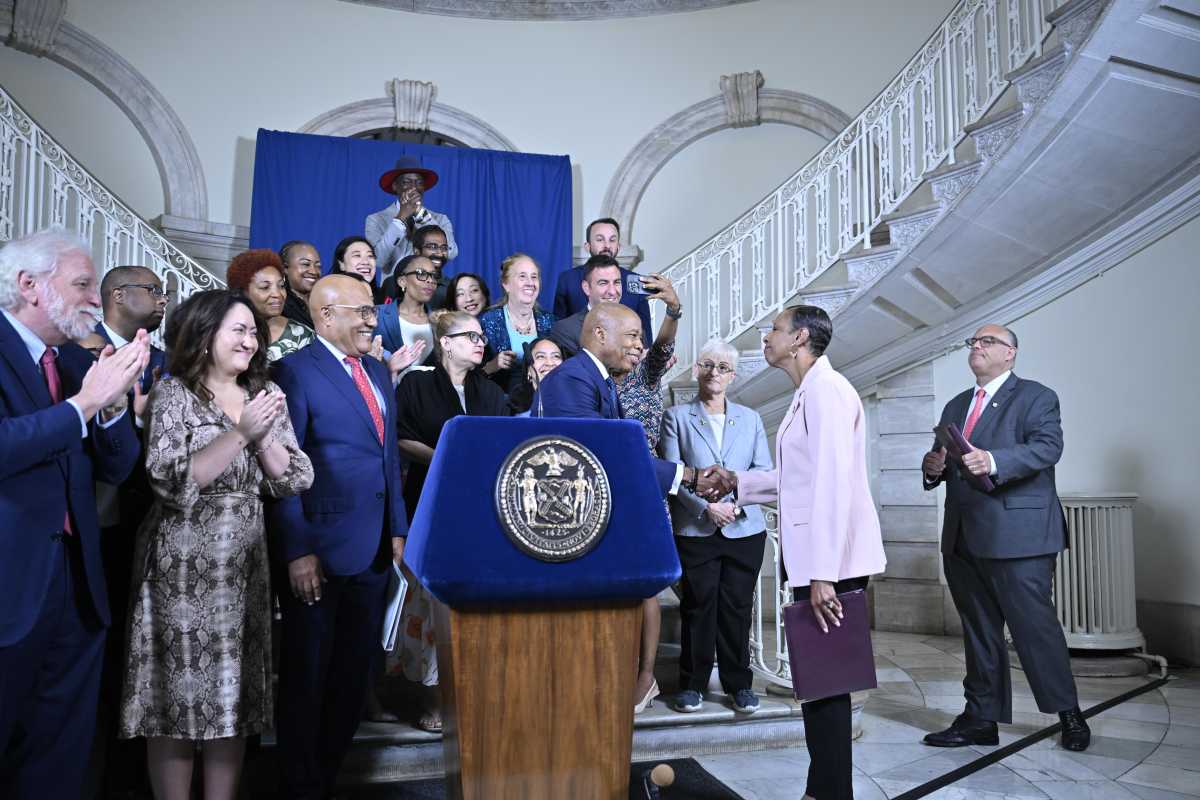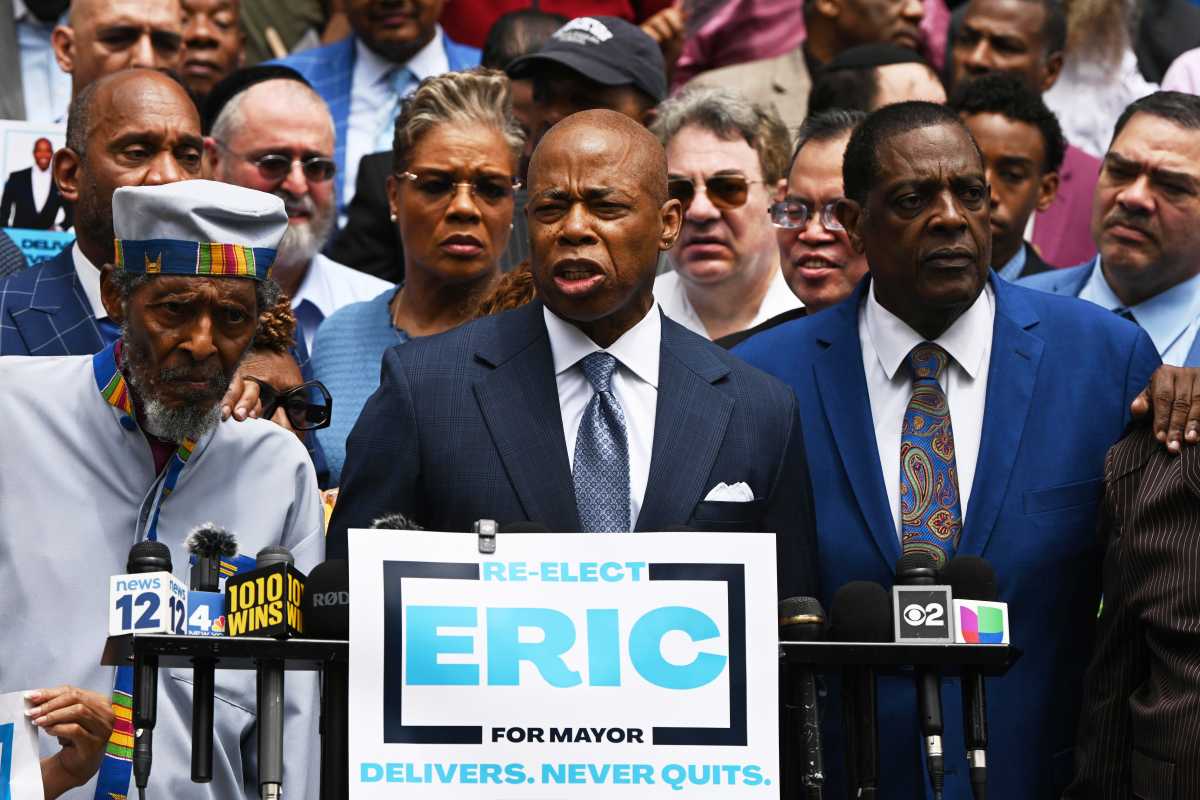The commish is sticking to his guns.
The city’s top cop reinforced his support for so-called broken-windows policing in the wake of a police work slowdown, during which beat cops drastically reduced the number of tickets and minor arrests.
Police Commissioner Bill Bratton defended his signature policy of aggressive policing of minor offenses at a Downtown event hosted by the Brooklyn Chamber of Commerce on Jan. 15 at MetroTech, saying that most “quality of life” arrests are the result of neighbor complaints.
“The vast majority of quality-of-life enforcement is at your request,” Bratton said.
In the wake of the murder of two officers in Bedford-Stuyvesant in December, Bratton was caught between Mayor DeBlasio and police union leaders, who accused the mayor of helping to foment an environment of anger and violence toward cops. Police at funerals for two murdered officers turned their backs on the mayor in protest, and beat cops all but stopped enforcement for minor offenses, according to police data.
The slowdown appears to be over, and on Thursday Bratton said that summons numbers were back to just 10 percent below what he called normal levels. The city may not have fallen apart during the period in which police refused to enforce quality-of-life laws, but the commissioner reaffirmed his belief in the power of broken-windows policing.
“Quality-of-life enforcement is what saved this city back in the ’90s,” said Bratton. “It is every bit as important to us as violent crime.”
Bratton made his name in the early 1990s tackling subway crime as head of the transit police under Mayor Dinkins, and then driving down lawlessness citywide as Mayor Giuliani’s first police commissioner, by clamping down on petty offenses along with major crimes. Back in power under Mayor DeBlasio, Bratton returned to the same tactics, notably cracking down on subway dancers and sellers of untaxed cigarettes.
Critics say broken-windows policing disproportionately targets communities of color and strain relationships with police.
The policy came under sharp criticism during the weeks of protests that followed the announcement that an officer who killed Eric Garner on Staten Island — as officers said they were trying to stop him on suspicion of selling loose cigarettes — would avoid charges. But Bratton said that with a more nuanced enforcement and a better public understanding of the policy, he believes the police can strengthen relations with the community.
“People want us to pay attention to the things that affect their neighborhoods, their streets, their parks, and their schools” he said. “We will go where we are asked to go, and we will deal with the incidents we are asked to deal with, but we will try to the best of our ability to do it in partnership, and in ways that solve problems rather than create them.”
Bratton received a standing ovation from the Chamber crowd following his speech.

























